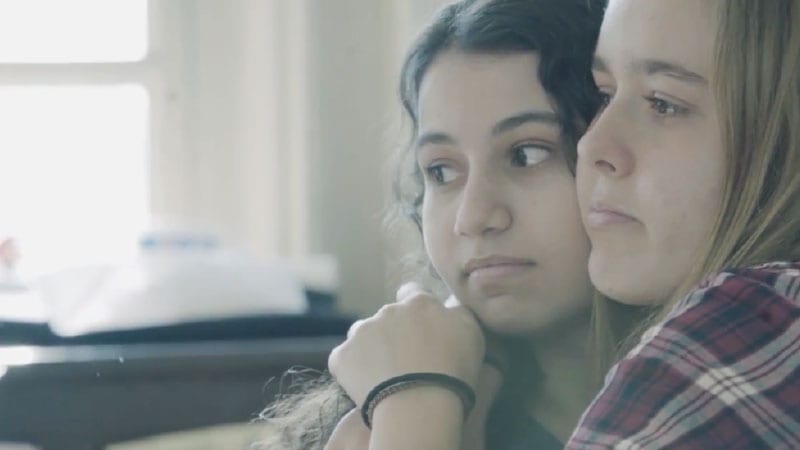A contest that gives students the chance to solve real problems
After three of her friends were killed in pedestrian car accidents in the span of 15 months, Alison Collard decided to do something. She started an organization, Vision Zero Youth Council, to fight for traffic safety in Brooklyn.
Then Alison heard about the Samsung Solve for Tomorrow Contest. The Brooklyn Technical High School sophomore thought it might be another way to bring attention to this pressing—and close-to-home—problem.
“I’m interested in engineering and technology and I wanted to combine that with my interest in activism for traffic safety. It seemed to fit perfectly with the competition,” said Alison.
The nationwide contest encourages students to use their skills in science, technology, engineering, art and science (STEAM) to create change in their communities. (Attention teachers: It is open to public school students in grades 6-12. Applications are being accepted now through Nov. 9.)
“Getting involved in any project whose scope extends beyond the four walls of the school into the community and that attempts to solve a problem that is real, is always of great value,” said Richard Capozzi, an English teacher at Brooklyn Tech and advisor for the Samsung project in 2015/16.
Alison came up with the idea of developing an app for wearables that would alert pedestrians to speeding cars. There were 50 proposals submitted at her high school for the contest, but Alison’s was selected as the most promising.
Then the work began.
Three other students joined the project. One was Benjamin Spiegel, a junior at the time. “It was an outlet to be creative in computer science. It was a super noble cause,” said Spiegel, who admits at first he thought the problem seemed impossible to solve.
The team worked after school and on weekends, studying how to build a wearable app to warn of fast approaching cars using the increasing magnitude of their sound waves. After months of research, development, coding and testing, the teenagers created a working prototype. The team made a video, fine-tuned their public speaking skills, and pitched their idea at the Samsung competition.
Victory
In 2016, the Brooklyn Tech team was one of Samsung’s national winners of the Solve for Tomorrow contest—earning $120,000 in classroom technology for their school and a trip to Washington, D.C., to share their innovation.
“It was marvelous,” said Capozzi. “Everyone was excited. We got the whole school involved. It was something that galvanized everyone’s attention.” Faculty, administrators, parents and alumni worked together to support the students, and the experience helped raise the profile of the school and the talent of its students, he added.
Benjamin, now a freshman at Brown University studying computer science, said being part of the Samsung competition was huge. “It seriously decked out my résumé, which was fantastic,” he said, adding that he feels comfortable pitching other ideas to Samsung for consideration in the future.
“We are mature and able to work together.”
Alison, now a senior at Brooklyn Tech, said the process taught her about teamwork, the importance of communication, and perseverance. She would like to pursue developing the app and is looking for funding from tech companies to eventually bring it to market. The team, however, envisions offering the app for free, so that it is widely available to improve public safety. “We don’t want cost to be in the way of preventing a child being hurt on their way to school,” said Alison, whose advocacy efforts have attracted the attention of policymakers and leveraged improvements for local traffic safety.
Alison added that the Samsung Solve for Tomorrow project showcases the passion and potential of young people. “My group was able to show that we are mature and able to work well together,” said Alison, who plans to study biomedical engineering in college. “If we set our minds to something, we can change the world and make the world a better place.”
Want to get your own students involved in the Samsung Solve for Tomorrow contest? Now is the time—the application period ends Nov. 9.


